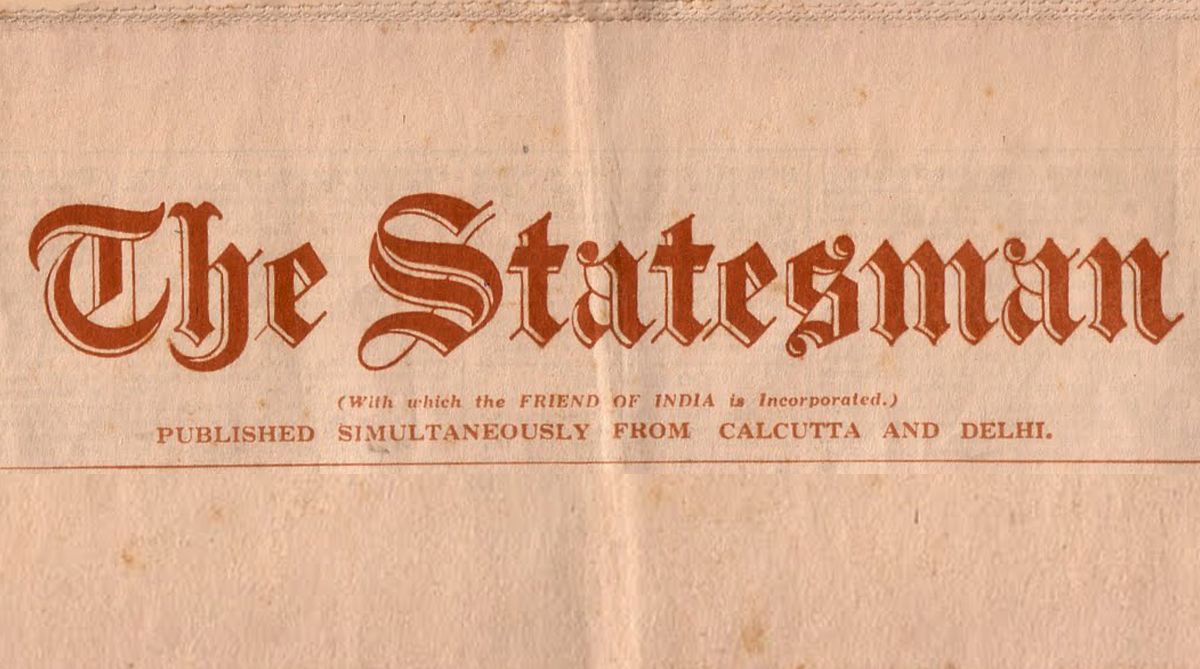A New Day, A New Dawn
There is a surprise for the readers. A special Poila Boishakh gift from none other than West Bengal chief minister Mamata Banerjee. Who has written a piece for this special edition.
On this day a century ago, these were some of the news items The Statesman readers got to read about India and the world.

OCCASIONAL NOTE
The Government of Bengal are to be congratulated upon their decision to restrict the hours during which licensed premises may be kept open in Calcutta. The new arrangement permits such premises to be opened at eleven in the morning, instead of six o’clock, and requires them to close at 10 P.M., except where special sanction is obtained from the Collector and the Police Commissioner to keep open until eleven o’clock.
The reduction of half a dozen hours thus effected in the daily period during which intoxicating liquors may be purchased in bars, etc., is all to the good, but it would have been even better if no exceptions to the ten o’clock rule had been permitted.
Advertisement
As was pointed out in a letter published in these columns the other day, the authorities in England are growing steadily stricter in their attitude towards the drink traffic, with the result that convictions for drunkenness experienced a striking decline last year.
In America the drink interests are being treated even more cavalierly, total prohibition being strictly enforced in every military area, and throughout some twenty States, while Canada became what the Prohibitionists call “bone dry” last May. The Government of Bengal, therefore, by restricting the sale of liquor in Calcutta and Howrah are acting in harmony with the Government of at least three of the great nations of the world.
DARING BURGLARY AT ASANSOLE
Information has reached Calcutta of a daring burglary at Asansole, in which the quarters of a guard on the East India Railway were entered and jewellery and other articles valued at about Rs 500 carried away. It appears that Guard A.H. Grindall had obtained a month’s leave and left for Calcutta on July 3rd.
Before leaving his wife secured all the doors with chains, and put two padlocks on the main door and one each on the other doors. On the 15th instant information was received by them that on the night previous thieves had broken into their house. Mr. and Mrs. Grindall immediately returned to Asansole and found that the whole of the premises had been ransacked.
The premises are situated in a barrack, where other guards with their families reside, and apparently no one was aware of the theft till the following morning, when the main door was found open. The police found two bundles of clothes belonging to the Grindalls lying in a field not far from the premises, and near by was buried a complete silver tea service.
SUIT AGAINST KAMARHATTY JUTE MILL
Mr. G.C. Sen, Second Subordinate Judge of Alipore, delivered judgment in a keenly contested suit brought by Babu Nalininath Sett and his brothers, of Burrabazar, against the Kamarhatty Mill Company, to recover possession of a plot of land at Kamarhatty, on which the defendant company was alleged to have wrongfully encroached.
It was contended by the plaintiffs that the company had no right to the land in suit; that the land was not included within the lease-hold mill premises which the company held as lessees under the plaintiffs, who had all along been in undisturbed possession of the land for more than twenty years; that the lease clearly described a certain drain as the boundary of the mill premises and that the disputed land was outside the said boundary.
Babu Kailash Chandra Basu, senior Government pleader, with Babus Nritya Lall Mukherjee and Shashindra Kumar Ray Chowdhury, vakils, appeared on behalf of the plaintiffs. The Judge held a local investigation and found in favour of the plaintiffs. He accordingly decreed the suit in favour of the plaintiffs with costs. Mr. Avetoom, counsel, with Babu Ramtaran Bannerjee and several other pleaders, appeared for the defendant company.
HIGH PRICE OF CLOTH
As many complaints have been made of the high prices of cloth, the following summary of the action taken to meet the difficultly is of interest: The present high prices are due to the fact that owing to the war the imports of cotton cloth from Lancashire have been greatly reduced, while its price has increased owing the high cost of such labour as is available at Home and also to the high price of raw cotton throughout the world, due in part doubtless to speculation, but mainly to the genuine shortage caused by the extensive use of cotton in the manufacture of munitions.
The high price of raw cotton in India has of course affected the prices of cloth turned out by the Indian mills. The Government of India are not in a position to take any steps to increase the quantity or reduce the price of cloth imported from Lancashire.
Advertisement